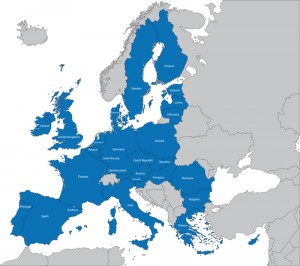If the Europe Union were to implement economic sanctions against Russia then it could very well “destroy” the economy of Cyprus, according to foreign minister Ioannis Kasoulides, who spoke with a German newspaper last week.
“There are very strong economic ties between Cyprus and Russia. If sanctions are really necessary, then every member state should decide for itself whether to take part,” stated Kasoulides.
“However the measures look, we must not harm ourselves.”
Several accounting and legal firms in Cyprus echoed the foreign minister’s concerns. These businesses are worried that additional sanctions installed against Moscow would hurt their own economic growth.
“Sanctions would have a limited influence in Cyprus but right now uncertainty remains and part of the decision making in business will be delayed,” said Elias Neocleous, deputy director of Andreas Neocleous and Co., in an interview with Bloomberg News.
 Cyprus remains to be one of the largest offshore investment regions for affluent Russians, despite the economic collapse it experienced last year, which forced the government to impose a 47.5 percent haircut on accounts holding 100,000 euros ($138,000). The Central Bank of Russia reported figures from the final three quarters of 2013 that highlighted that $12.9 billion was allocated from Cyprus into Russia.
Cyprus remains to be one of the largest offshore investment regions for affluent Russians, despite the economic collapse it experienced last year, which forced the government to impose a 47.5 percent haircut on accounts holding 100,000 euros ($138,000). The Central Bank of Russia reported figures from the final three quarters of 2013 that highlighted that $12.9 billion was allocated from Cyprus into Russia.
After Cyprus took money from depositors, Yury Pyanykh, president of the Association of Russian Businessmen in Cyprus, called the move “legalized theft.”
“This violates a number of fundamental international treaties,” said Pyanykh. “And if this action is taken, I can imagine how many lawsuits will be initiated over this case and how many of them will be won.”
This month, EU foreign ministers concurred to enhance the list of sanctions imposed against Russian officials for participating in the Ukraine crisis. It refrained from applying dire sanctions ahead of a meeting of top EU, United States, Russian and Ukraine officials in Geneva, Switzerland late last week.
The Cyprus official called the meeting an important tool for producing de-escalation in Ukraine.
EU foreign policy chief Catherine Ashton said the ministers agreed to add other people to the asset-freeze and travel ban list, which was established shortly after the referendum that took place in Crimea last month. There are at least 33 Russian officials already placed on the list.
It was reported that fund managers located in the U.S. have warned shareholders of the risks that could come from present or future Western sanctions against Russia. According to recent securities filings, finance experts have cautioned that sanctions by the U.S. or the EU could cause a debasement of the ruble, a credit rating downgrade and/or a decline in Russian stocks.
The White House has further threatened to persist in sanctions. U.S. national security adviser Susan Rice stated: “Those costs and sanctions could include targeting very significant sectors of the Russian economy.”
Other U.S. lawmakers have sided with President Barack Obama and his administration on moving forward with dire sanctions. Tennessee Republican Senator Bob Corker and Connecticut Democratic Senator Chris Murphy both recommended for the U.S. to “ratchet up our sanctions.”



